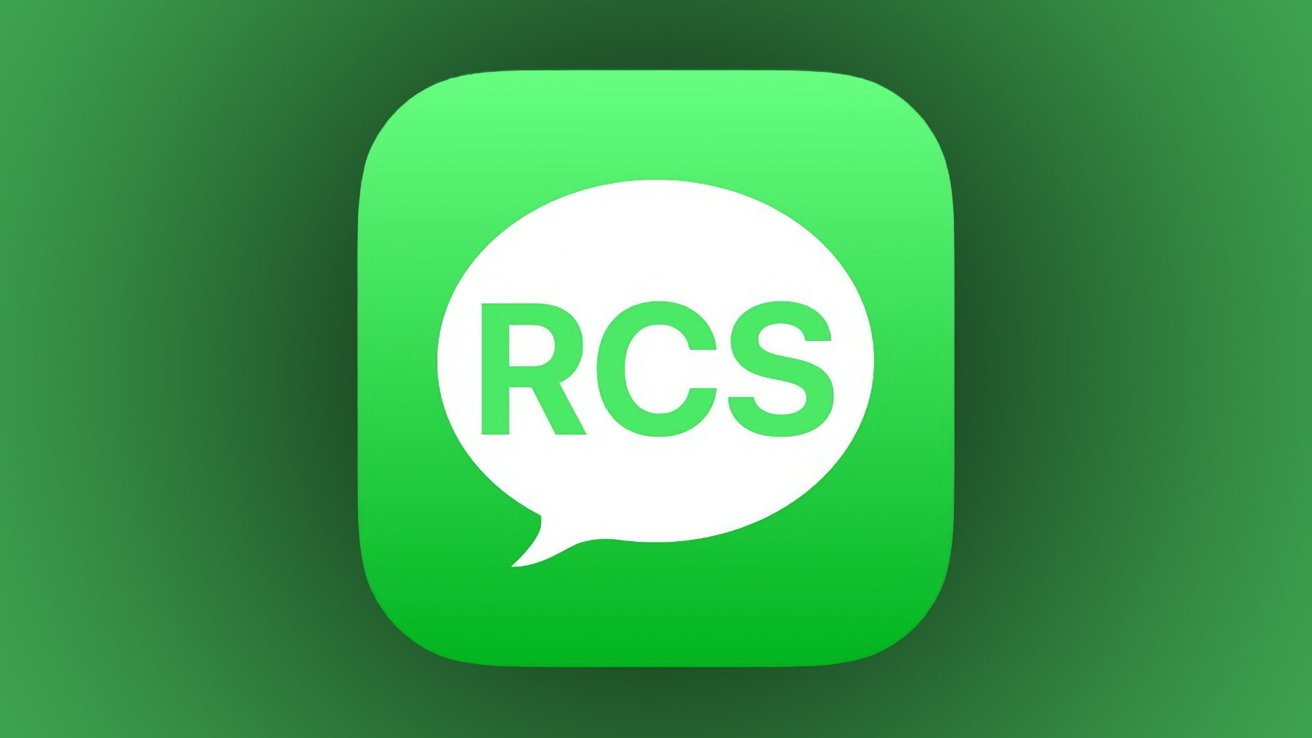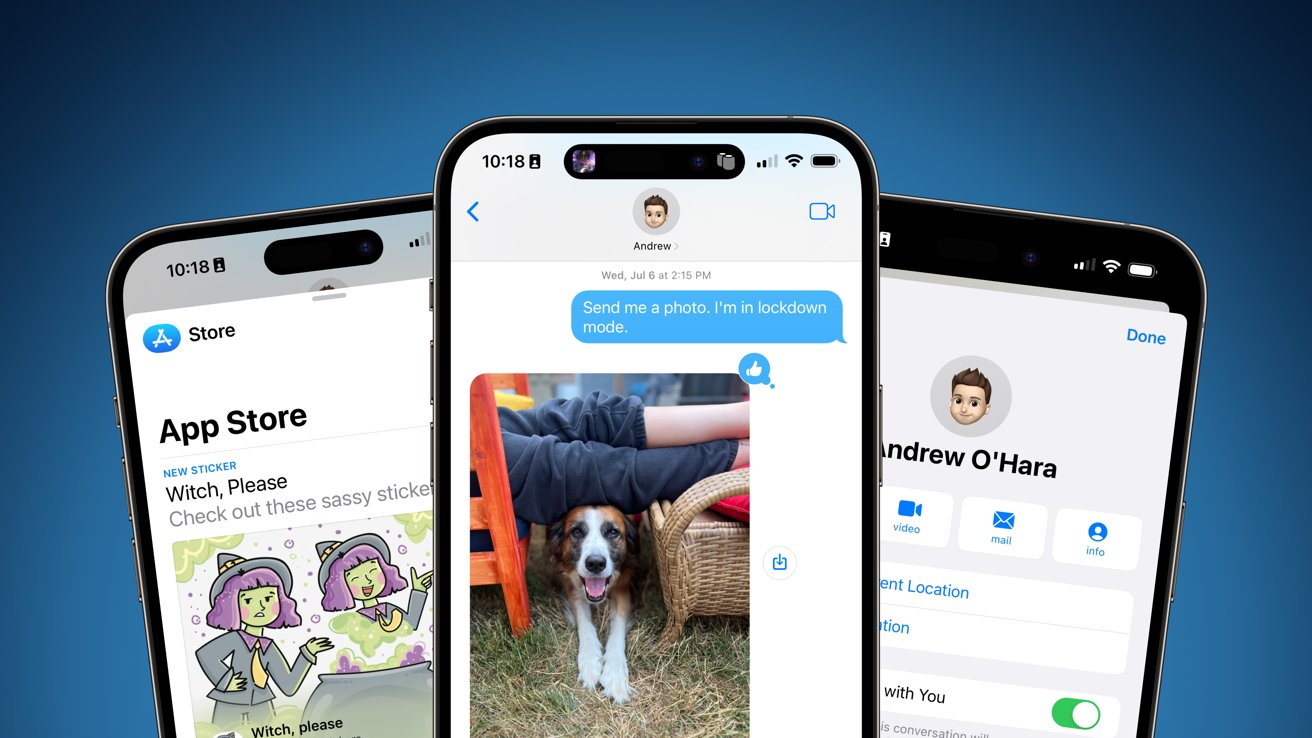Apple still doesn't need RCS, but the latest update brings it closer to being suitable for...
Google has been pushing RCS as a standard that will replace SMS, criticizing Apple for not adopting it, and yet its latest update is only one tiny step closer to being suitable as an option for Apple.

RCS competes with iMessage
Rich Communication Services (RCS) is a new internet messaging standard meant to replace outdated technologies like SMS. However, several problems with its implementation have kept it from becoming widespread, though a year of progress has made it slightly better than half-baked.
On Tuesday, Google made a couple of announcements via its RCS support channel. RCS is now enabled by default, kind of, and group messages are now end-to-end encrypted as long as everyone in them has RCS enabled.
Specifically, here's what Google had to say about its RCS update:
"RCS will now be enabled by default for new and existing users, unless they've previously turned RCS off in Settings. You can always turn RCS on or off in Settings at any time. "
Google says this default setting has come about to ensure everyone benefits from the end-to-end encrypted group chats. That is if you can access RCS.
It's still not immediately clear who gets to benefit from RCS, though it is an increasing population. There is still some confusion around carrier or device support, and Google has attempted to get around this by baking RCS into Messages by Google.
After diving through many Google support documents, there doesn't appear to be a master list of supported devices. That's understandable, given the thousands of handsets running Android on the market.
That's an incredible difference when compared to Apple's iMessage. Every iPhone, iPad, Mac, and Apple Watch comes with the Messages app.
That and iMessage is tied to the user's phone number and Apple ID. It's a foolproof system that ensures users just open their messaging app and start chatting without having to think of what standard they are using.
As long as Android users have to think about whether or not they are using RCS, which version is in play, and what app to use -- RCS is a failure. That said, Google does seem to be addressing these problems, albeit slowly.
RCS needs to meet Apple's standards
If Apple is ever going to consider RCS a realistic standard to bring to its Messages app, Google needs to make the case. The many ads from Google blaming Apple for not adopting RCS make it seem like an Apple problem to solve.

iMessage is ingrained in iOS, unlike RCS on Android
Google is the driving force behind RCS. Therefore it needs to make it worth Apple's and its customer's time.
If Apple were to implement RCS in Messages today as an option to message Android users, it removes the simplicity of using Apple Messages and introduces Google's fragmented issues to the platform.
Google has a significant up hill battle on its hands. The company needs to undo decades of carrier bloat, government nosiness, and user norms to get RCS on every platform as a universal standard.
It seems like an impossible task. Instead, we at AppleInsider expect RCS will eventually fall to the wayside as another failed Google experiment while a true new standard steps up, backed by carriers, governments, and tech platforms alike.
In any case, today's update is a step in the right direction. There is still a slim chance Apple could consider RCS on iPhone in the next decade.
Until then, you can "buy your mom an iPhone."
Read on AppleInsider


Comments
RCS is not "a new internet messaging standard". It started as a telcom industry initiative in 2007, and was developed at the GSM Association from 2008 onwards. The goal was to replace SMS, which was a hack that had become incredibly popular.
1 Stop people leaving Android for iOS due to the iMessage ecosystem.
2 Get hold of a couple of billion AppleIDs Android users will interact with.
If Google is pushing it so furiously there is one play: it's good for Google!
There are plenty of cross platform messaging apps out there. (WhatsApp, Viber, Messenger, Snapchat...)
- Microsoft no longer supports SMS for some sign-in types, including new devices and multi-factor authentication
- Facebook/Meta Messenger will no longer support SMS as of September 28, 2023
- Signal is removing SMS and MMS support to improve user safety and data protection
Apple can cling to the insecure SMS as a backup and cross-platform messaging standard as long as they want, and for solely competitive reasons, but they're not doing Apple users any favor by doing so.My guess is that, for purely profit reasons, Apple will refuse to make any iMessage protocol changes until law or regulators mandate it. But change they will, and probably sooner rather than later. Any takers on a friendly wager of within 12-16 months (probably less but I'm being generous)?
Google already announced that it intends to “build MLS into Google Messages and support its wide deployment across the industry by open sourcing our implementation in the Android codebase.”
This means that with MLS built into Google Messages, you’ll be able to chat with others securely, E2EE, no matter what messaging app they use including iMessage.
They give the technology they develop away for free, and make profit by monitoring everything possible while people are using their technology, building a profile about them, and then selling advertisers opportunities to get in front of the right eyeballs because they know everything about people.
Their business model has essentially made technology (especially software) worthless in most people's eyes. People now expect everything to be free. I was actually having a debate about this with someone the other day. Their response was "but Google's software isn't that great" (which I admit that I had a good laugh at). Unfortunately it's not just Google's software, many other software companies now fund their products the same way because it's impossible to compete with free, and that's what people have come to expect. It's also happening in other industries like news, entertainment, etc, but that's a separate (though related) debate. Especially in the sense of decent paying jobs in those industries.
So with that, one can understand the facade Google has built around open standards and open source. When the technology itself isn't what you're selling, it's much more profitable if you can get it for free from open source communities, or clone and own existing technology to avoid the cost of licensing or creating it yourself. And with open standards for everything, you get to remove any competitive advantage other technology companies might have.
I wonder what Google would say if they had to open source their database of information about people, thus eliminating any competitive advantage they have over other online advertising companies...
As for RCS/SMS, I definitely believe the MLS approach is the best option. Have the encryption/authentication part be an open standard, as well as how messages are delivered, but allow technology companies to keep any competitive advantage they have in regard to communication other than text and simple media.
Yeah, that'll be the day when governments start mandating E2E encryption, hahaha.
They involve themselves in far more than ad development, but yes it's ads that allow Google to significantly outspend Apple when it comes to research and development; Reporting stats show Google R&D spend in 2022 was $31.56 billion (exceeding the total revenue of 128 Fortune 500 firms) compared to Apple's $21.91 billion.
Apple could spend more if they wanted, and on things that would benefit the greater community at large more. But their interests in advancing technology are not as diverse as Google's, nor does it need to be for Apple to be the most profitable company on the planet. They do pretty good by concentrating on those things they can directly profit from.
Google has its fingers in a lot of things, including those where there's no clear profit motive.
For whatever reason, the common perception is Google doesn't support anything older than three years which is untrue.
More research and less squawking would be in order.
Apple themselves revealed how and why https://www.thurrott.com/apple/248931/apple-didnt-bring-imessage-to-android-because-of-its-lock-in-strategy
Apple gets a lot of flack for "sherlocking" small apps, but that's nothing compared to the scale on which Google has done it. And I'd be willing to bet that the fact those companies weren't able to defend themselves has virtually eliminated the industry of creating and licensing technology (software anyway - hardware licensing is still common).